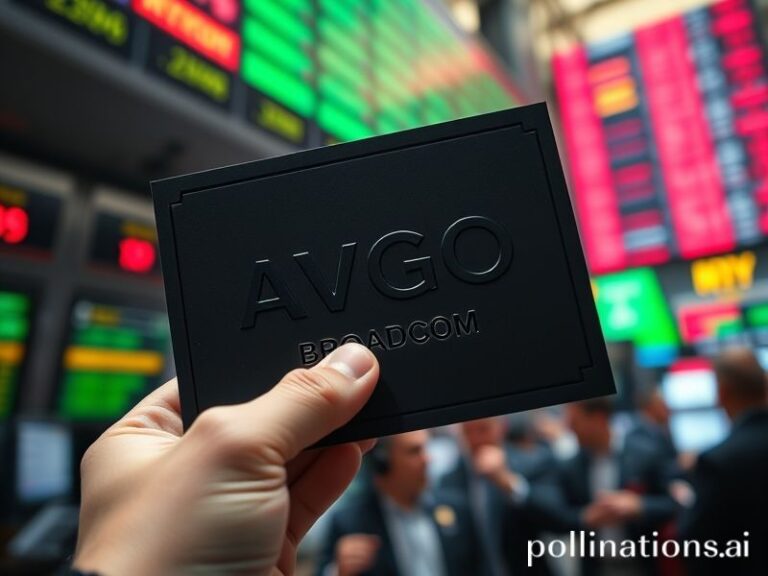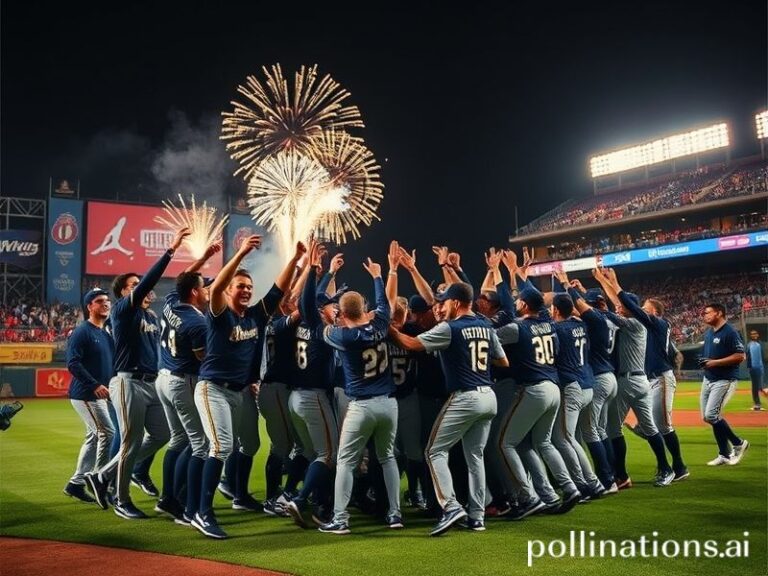Global Fiascos & Apology Diplomacy: The International Recall Report
A Global Parade of Regret: How the World’s Products Are Sneaking Back Home
By the Dave’s Locker Foreign Desk, still wondering who keeps the receipt for planet Earth.
RECALLS – the polite euphemism for “we shipped you a liability, please pretend you never opened it.” From Brussels to Bogotá, recalls are the 21st-century apology note taped to the side of a flaming crate: “Oops, our hoverboard doubles as a crematorium; send it back (postage not included).” The phenomenon is no longer a quirky American tradition, like deep-fried butter or congressional gridlock; it has become a planetary pastime, as universal as disappointment itself.
In 2023 alone, the EU’s RAPEX system logged 2,437 alerts. That’s roughly one “please stop using your baby monitor as a flamethrower” warning every three hours, including coffee breaks. Meanwhile, China’s State Administration for Market Regulation issued 7,200 recalls—so many that factory managers now practice saying “regrettable oversight” in 14 languages between smoke breaks. Japan’s Ministry of Economy prefers a softer touch, announcing recalls via pastel-colored mascots that bow in synchronized shame. Australians, never ones to waste a crisis, simply toss the offending item into the bush and let the wildlife beta-test it.
The global supply chain, that Rube Goldberg contraption of container ships, wishful thinking, and Excel spreadsheets, guarantees that a faulty diode in Shenzhen can ruin brunch in Stockholm. Consider the Great Tahini Scare of 2022: a single sesame grinder in Ethiopia contaminated batches bound for Toronto supermarkets, Tel Aviv kiosks, and Tokyo convenience stores. The recall notice read like a UN roll-call, and somewhere a diplomat wondered if hummus was now a bioweapon.
Cars, of course, remain the aristocrats of recalls. In Germany, 1.2 million diesel Mercedes politely requested a return to the fatherland for “software adjustments,” which is corporate for “we lied about emissions, but could you keep it between us?” Ford recalled 1.5 million pickup trucks across North America because their seat belts had the survival instinct of a mayfly. And in India, a popular scooter model was called back when customers discovered the horn button occasionally triggered the ejection seat—handy on Bangalore’s ring road, less so during school runs.
Food recalls carry their own tragicomic flavor. Brazil once recalled 500 tons of rotten meat days after it had been exported to 30 countries; bureaucrats described the operation as “logistically stimulating.” South Korea yanked thousands of kimchi jars when shards of rat were detected—proving, once again, that even fermented vegetables can bite back. The French, ever protective of their culinary dignity, recalled Camembert in 2023 because the bacteria were insufficiently poetic.
Pharmaceutical recalls are the elder statesmen of the genre. In Nigeria, 2.4 million bottles of cough syrup were pulled after regulators noticed the “inactive ingredients” were heroin. Europe’s valsartan heart-drug scandal revealed that Chinese labs had been swapping active compounds like Pokémon cards. Patients who had spent years swallowing placebos were advised to “continue worrying, but now with justification.”
Why do recalls keep ballooning? Partly because testing is expensive, and it’s cheaper to ask forgiveness in 47 languages. Partly because global regulators play whack-a-mole across time zones, chasing products that move faster than their paperwork. And partly because consumers, bless our bargain-hunting hearts, will forgive almost anything if the replacement coupon is generous enough. Amazon even offers a “one-click return” now—Jeff Bezos’s final frontier is apparently the apology economy.
The broader significance? Recalls are globalization’s hangover: the moment the planet collectively discovers what it swallowed last night. They expose the fiction of borderless commerce—your blender may be “Made in Everywhere,” but liability still needs a ZIP code. They also serve as accidental diplomacy: the US and China trade more apologies than tariffs these days, and the UN has floated a “Global Recall Treaty,” presumably stored on a flash drive that will itself be recalled for overheating.
In the end, recalls remind us that progress is iterative, safety is negotiable, and the warranty expires just after you lost the receipt. Until then, keep the box, save the manual, and trust nothing—especially the airbag that texts you emojis instead of inflating. The world is shipping you tomorrow’s regret today; the least you can do is sign for it with a smile.







